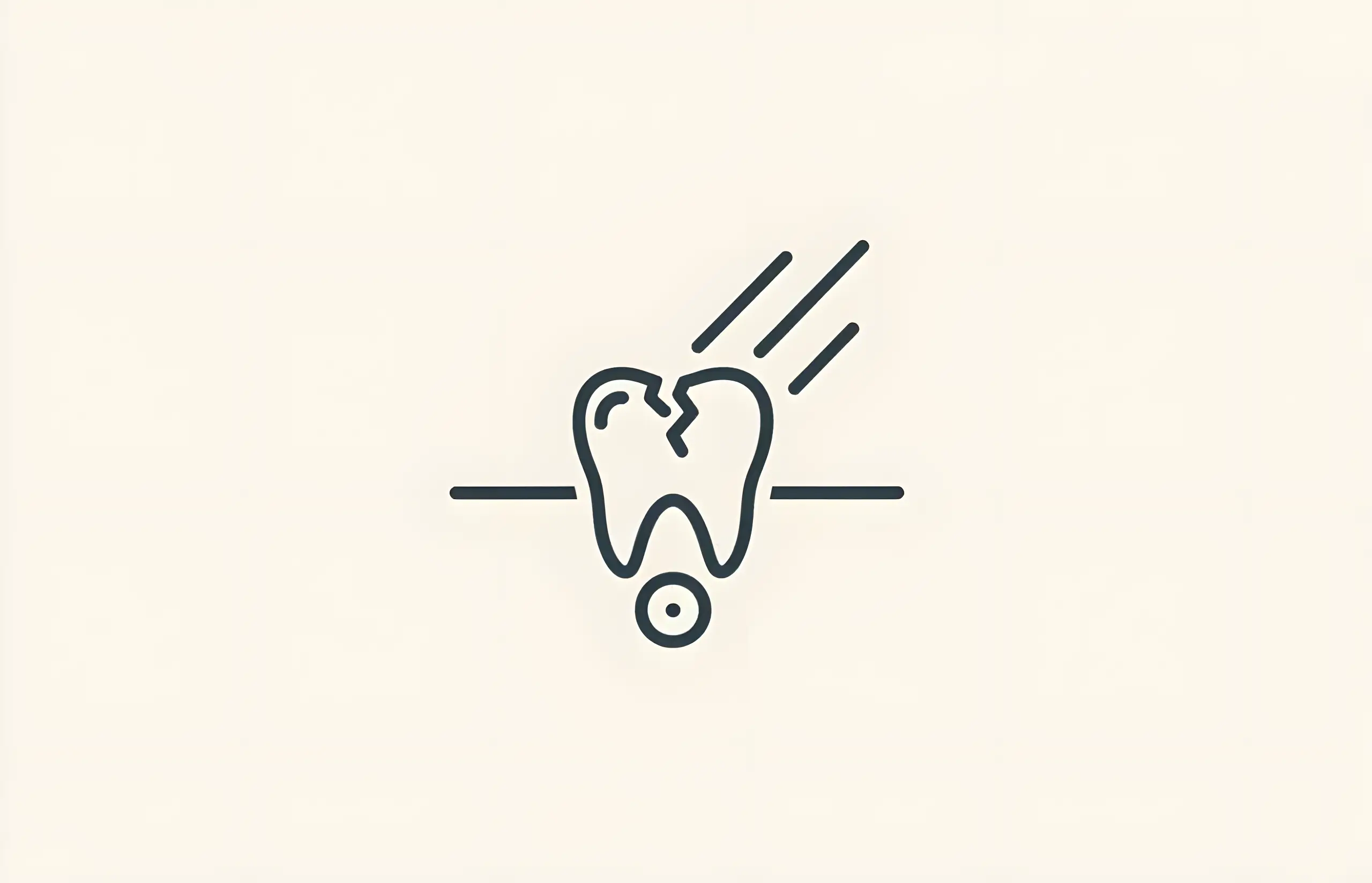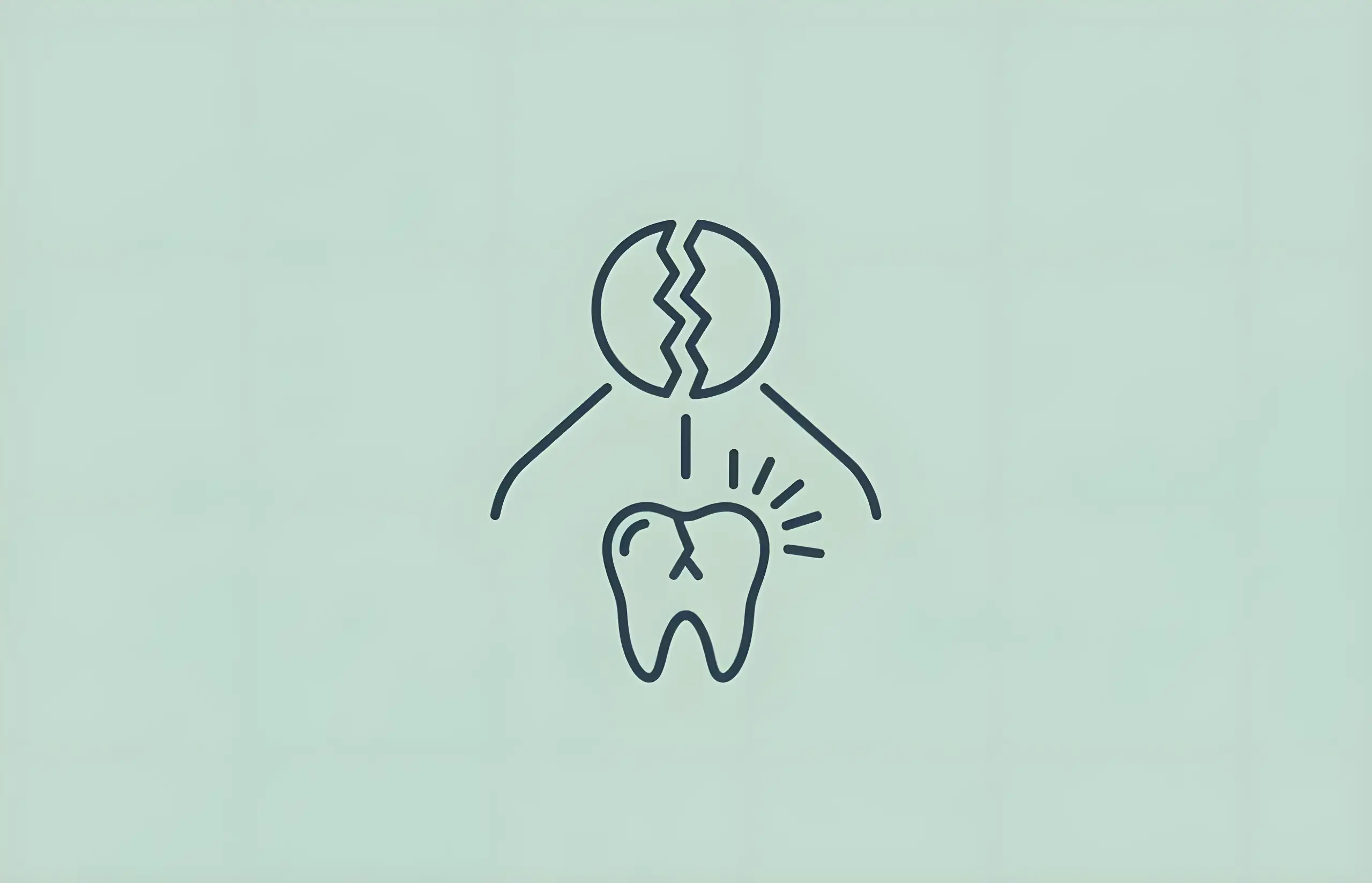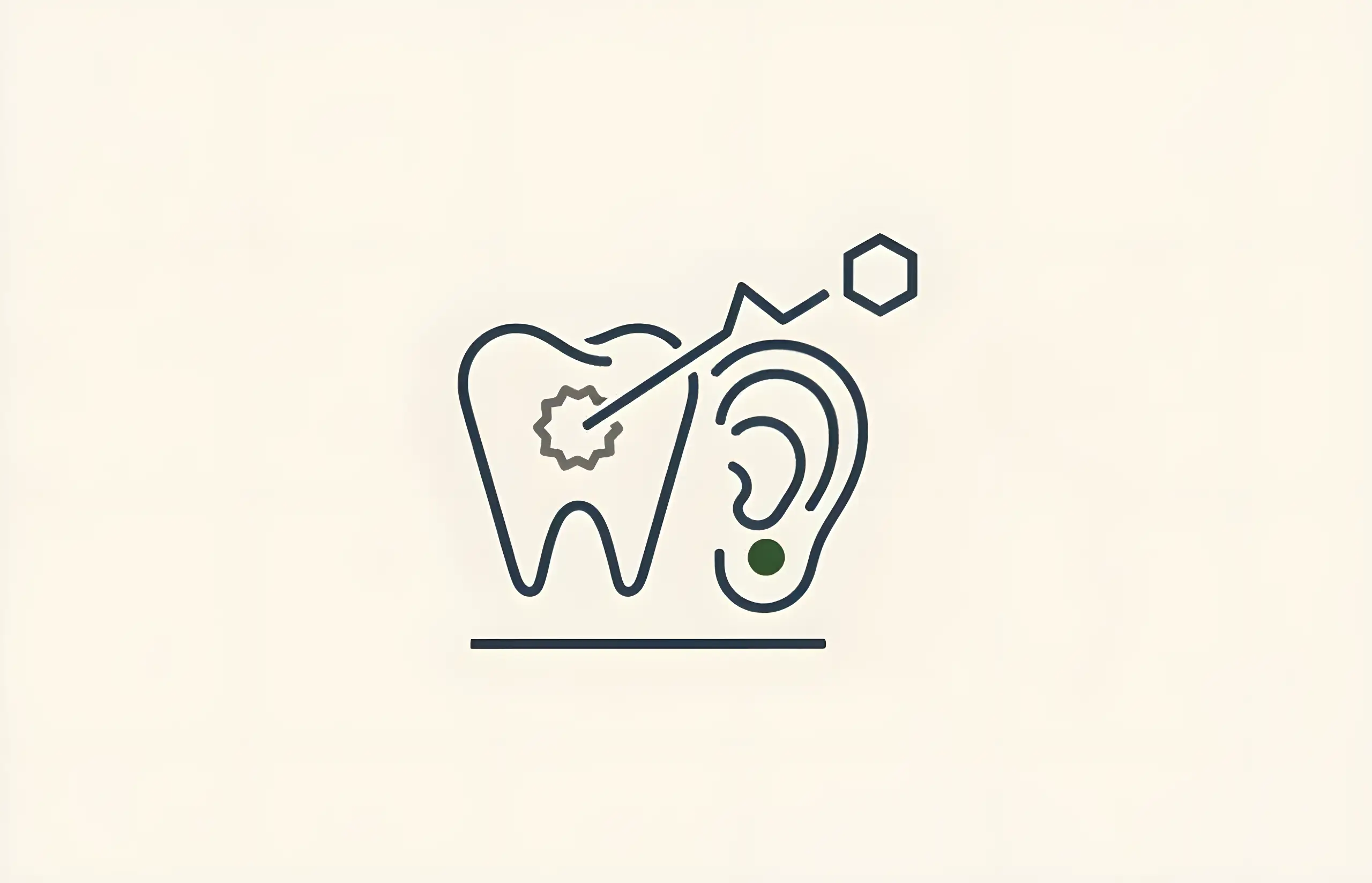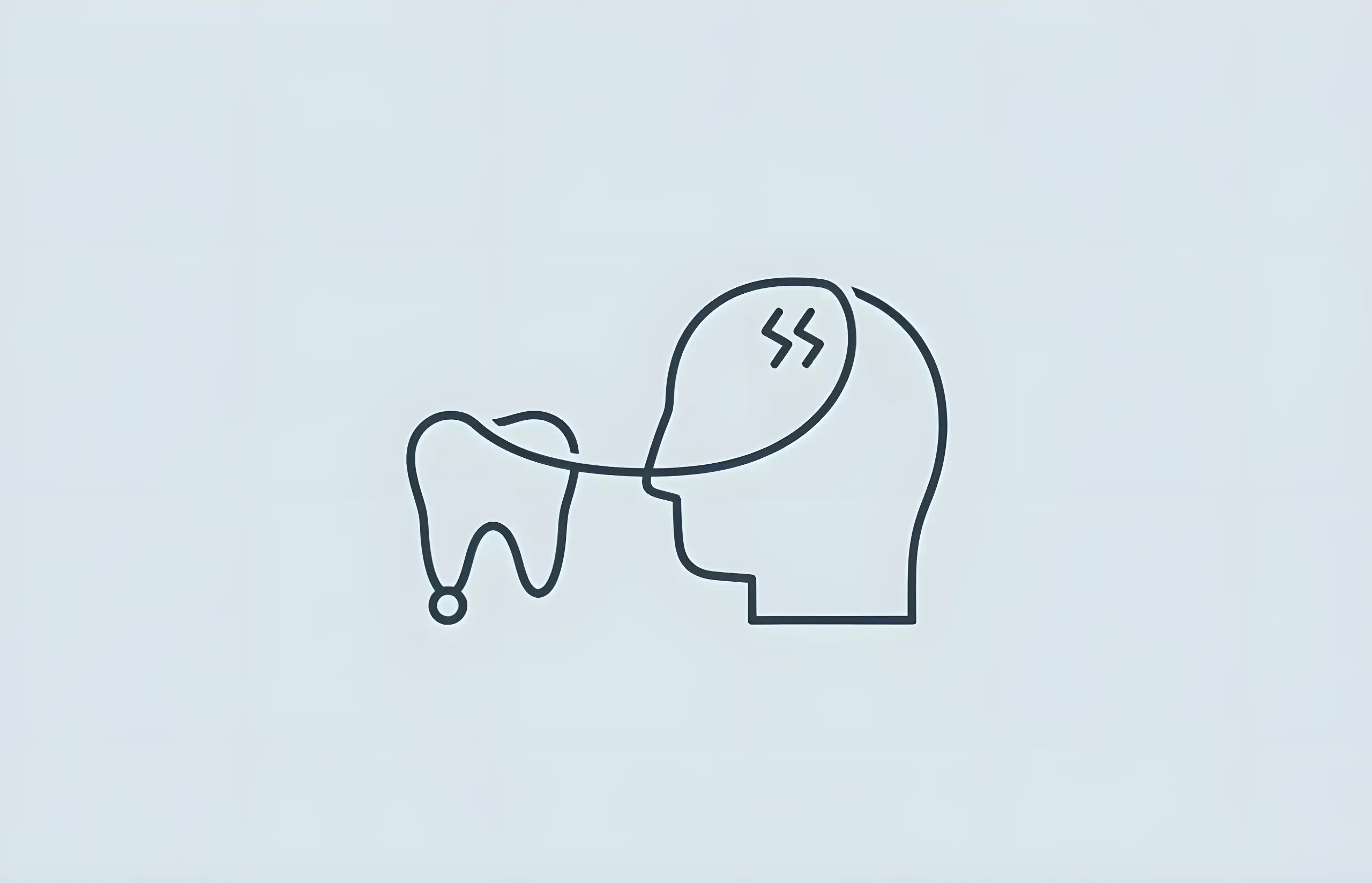If you suffer from toothaches, you know that the pain can be uncomfortable, even debilitating. And, at times, you may be experiencing both a toothache and a headache, which may lead you to wonder if both these are connected. In this article, we'll explore how toothache can cause headaches. So, read on to know more.
Possible Reasons for a Toothache Caused Headache
A toothache and headache are often connected, and there are many reasons how a toothache caused by some underlying dental problem can contribute to headaches. Let's take a look at some of them.
Abscess or Infection
A decayed or damaged tooth can develop a bacterial infection, apart from triggering nerve pain. The bacteria penetrate the tooth and destroy the pulp chamber causing swelling, fever, and pain. It may also cause an abscess.
The diseased nerve tissue not only damages the tooth enamel but also transfers the pain to the face and head. If an abscess forms in your jaw, especially the upper one, it can cause migraine or sinus headaches that can be extremely debilitating.
However, you can prevent the spread of the infection and other complications by immediately seeking treatment for your toothache. Often, antibiotics are used to clear up any infections in the tissue, and a root canal procedure can save an infected tooth. And, when the infection goes away, the headaches will also disappear.
Tooth Damage
The nerve tissue is very sensitive, and if you're suffering from any tooth damage such as a worn, cracked, or broken tooth that exposes the nerve tissue, it can cause pain, which may not be limited to the affected tooth alone. The pain in the nerve pulp of the tooth can travel via the trigeminal nerve to the head and cause a headache.
Sometimes, nerve pain caused by tooth damage can even trigger migraines (intense pain on one side of the head) and other symptoms such as nausea, vomiting, sound, or light sensitivity.
So, if you have a damaged tooth, you should consult a dentist immediately who can treat any infection and also relieve or prevent pain. Using permanent crowns can help cover the damaged enamel and protect the nerve tissue from any stimuli, preventing damage, toothache, and headache.
Bruxism
Grinding of teeth, gnashing, or clenching them unconsciously is known as bruxism. When the top and bottom teeth are misaligned, it can wear the tooth enamel, causing the jaw muscles to become fatigued and even causing tooth fractures.
Any tooth damage because of bruxism can cause nerve pain to be transferred from the teeth to your face and the head. In addition, the repeated clenching of the jaw and grinding of teeth results in constant sore jaw muscles, trouble closing and opening the mouth, and headache, especially when you wake up in the morning.
So, if you suffer from headaches caused by bruxism, you can consult your dentist, who can help. They may ask you to wear a mouth guard that can help to align the jaws properly, reduce jaw tension, tooth enamel wear and, as a result, reduce headaches.
Other Causes
There may be certain conditions that may cause a toothache, as well as a headache, but may not be a tooth-related problem such as:
Temporomandibular Joint Disorder
Another common condition that causes headaches is TMJ (temporomandibular joint disorder). TMJ causes a problem in the jaw joint that is in front of the ear and the muscles around it. TMJ causes toothache and headaches, which are generally triggered by the movement of the jaws, such as closing and opening the mouth.
Most often, TMJ occurs when there is some injury to the joint and things such as whiplash, sports trauma, or even keeping your mouth wide open for a long time.
Sinus Infection
If you have sinus congestion or infection, you may experience some discomfort or pain in one/many teeth that are located below the maxillary sinus. And apart from a toothache, you may also have a headache that worsens, especially when you bend forward.
Signs That Your Headache May Be Due to Dental Problems
Several problems can cause headaches, and pinpointing the trigger or cause of the headache can be rather difficult. However, headaches related to dental issues generally are preceded or accompanied by symptoms such as:
- Toothache
- Sore jaw muscles
- Bruxism (teeth grinding)
- Clicking or popping of the jaw
- Pain behind the eyes
- Scalp tenderness
In conclusion, having a toothache, as well as a headache, can be quite uncomfortable and hamper your ability to carry out your daily tasks. The cause of this kind of pain can be quite difficult to pinpoint, so you should note the type of pain and what may have triggered it.
This can help your dentist determine the possible causes of the toothache and headaches and provide appropriate dental treatment.
Sources and References
-
[1]
Bruxism, temporomandibular disorders, and headache: a narrative review of correlations and causalitiesPainhttps://pubmed.ncbi.nlm.nih.gov/38888745/
-
[2]
Temporomandibular Disorders, Bruxism and HeadachesNeurology Clinicshttps://pubmed.ncbi.nlm.nih.gov/38575267/
- [3]
-
[4]
Chronic migraine headache and multiple dental pathologies causing cranial pain for 35 years: the neurodental nexusBMJ Case Reportshttps://pmc.ncbi.nlm.nih.gov/articles/PMC6768330/
All sources accessed and verified on . Medical information reviewed for accuracy and compliance with current guidelines.
Related Articles

What to Do When Your Tooth Is Broken off at the Gumline
Emergency Management and Treatment Options for Gumline Tooth Fractures (97.8% Success at 1 Year)

What Causes Tooth Pain after Biting a Hard Object?
Comprehensive guide to tooth pain causes including bruised ligament, high restorations, cavities, cracked teeth, and gum infections, with diagnostic approaches and treatment options

Causes of Toothache and Ear Pain on the Same Side
Complete guide to understanding why toothache and ear pain occur together including TMJ disorders, dental infections, bruxism, sinusitis, and treatment options
About The Dental Guide
The Dental Guide is a trusted online resource providing evidence-based information about dental health, treatments, and procedures. Our content is created and reviewed by qualified dental professionals to help you make informed decisions about your oral health.
Our Mission
- Evidence-based dental information
- Expert-reviewed content
- Clear, accessible explanations
- Latest treatment options
- Patient-focused guidance
Editorial Standards
- GDC-registered dental professionals
- Peer-reviewed sources
- Regular content updates
- Medical accuracy verification
- Transparent authorship
Important Notice
The information on The Dental Guide is for educational purposes only and should not replace professional dental advice. Always consult with a qualified dentist for diagnosis and treatment recommendations tailored to your individual needs and circumstances.
Medically Reviewed
Reviewed by Dr. Nasim Mechoui , BDS (Bristol)
Share this article
Comments & Discussion
Have questions about dental implants? Share your thoughts or experiences.
